
-
 Afrikaans
Afrikaans -
 Albanian
Albanian -
 Amharic
Amharic -
 Arabic
Arabic -
 Armenian
Armenian -
 Azerbaijani
Azerbaijani -
 Basque
Basque -
 Belarusian
Belarusian -
 Bengali
Bengali -
 Bosnian
Bosnian -
 Bulgarian
Bulgarian -
 Catalan
Catalan -
 Cebuano
Cebuano -
 Corsican
Corsican -
 Croatian
Croatian -
 Czech
Czech -
 Danish
Danish -
 Dutch
Dutch -
 Ingles
Ingles -
 Esperanto
Esperanto -
 Estonian
Estonian -
 Finnish
Finnish -
 French
French -
 Frisian
Frisian -
 Galician
Galician -
 Georgian
Georgian -
 German
German -
 Greek
Greek -
 Gujarati
Gujarati -
 Haitian Creole
Haitian Creole -
 hausa
hausa -
 hawaiian
hawaiian -
 Hebrew
Hebrew -
 Hindi
Hindi -
 Miao
Miao -
 Hungarian
Hungarian -
 Icelandic
Icelandic -
 igbo
igbo -
 Indonesian
Indonesian -
 irish
irish -
 Italian
Italian -
 Japanese
Japanese -
 Javanese
Javanese -
 Kannada
Kannada -
 kazakh
kazakh -
 Khmer
Khmer -
 Rwandese
Rwandese -
 Korean
Korean -
 Kurdish
Kurdish -
 Kyrgyz
Kyrgyz -
 Lao
Lao -
 Latin
Latin -
 Latvian
Latvian -
 Lithuanian
Lithuanian -
 Luxembourgish
Luxembourgish -
 Macedonian
Macedonian -
 Malgashi
Malgashi -
 Malay
Malay -
 Malayalam
Malayalam -
 Maltese
Maltese -
 Maori
Maori -
 Marathi
Marathi -
 Mongolian
Mongolian -
 Myanmar
Myanmar -
 Nepali
Nepali -
 Norwegian
Norwegian -
 Norwegian
Norwegian -
 Occitan
Occitan -
 Pashto
Pashto -
 Persian
Persian -
 Polish
Polish -
 Portuguese
Portuguese -
 Punjabi
Punjabi -
 Romanian
Romanian -
 Russian
Russian -
 Samoan
Samoan -
 Scottish Gaelic
Scottish Gaelic -
 Serbian
Serbian -
 Sesotho
Sesotho -
 Shona
Shona -
 Sindhi
Sindhi -
 Sinhala
Sinhala -
 Slovak
Slovak -
 Slovenian
Slovenian -
 Somali
Somali -
 Spanish
Spanish -
 Sundanese
Sundanese -
 Swahili
Swahili -
 Swedish
Swedish -
 Tagalog
Tagalog -
 Tajik
Tajik -
 Tamil
Tamil -
 Tatar
Tatar -
 Telugu
Telugu -
 Thai
Thai -
 Turkish
Turkish -
 Turkmen
Turkmen -
 Ukrainian
Ukrainian -
 Urdu
Urdu -
 Uighur
Uighur -
 Uzbek
Uzbek -
 Vietnamese
Vietnamese -
 Welsh
Welsh -
 Bantu
Bantu -
 Yiddish
Yiddish -
 Yoruba
Yoruba -
 Zulu
Zulu
Precision Roll Thread Machine | Durable Steel Bar Thread Rolling
Industry Trends and the Evolution of Thread Rolling Technology
The global manufacturing sector is witnessing a profound shift towards automation, precision, and efficiency, driven by the demands of robust infrastructure, energy, and construction projects. Within this evolving landscape, the demand for high-quality fasteners and threaded components is ever-increasing. Modern engineering applications require threads that are not only dimensionally accurate but also possess superior material integrity and fatigue resistance. This imperative has significantly amplified the importance of advanced thread forming technologies, particularly the roll thread machine. This technology offers distinct advantages over traditional cutting methods, including enhanced material strength, improved surface finish, and reduced material waste.
Emerging trends indicate a strong focus on smart manufacturing, predictive maintenance, and integrated automation within thread rolling operations. Companies are investing in machines capable of handling diverse materials, from standard carbon steels to high-strength alloys, and producing complex thread profiles with minimal human intervention. Furthermore, the environmental impact of manufacturing processes is under scrutiny, pushing for energy-efficient solutions and reduced material consumption. The market for steel bar thread rolling machines is experiencing consistent growth, propelled by large-scale public works and industrial expansion in developing economies. Innovations in die materials and machine control systems are continually pushing the boundaries of what is achievable, offering greater speed, precision, and longer service life for tooling.
Another critical trend is the increasing need for specialized applications, such as threading for rock bolts, rebar connections, and various structural components where reliability is paramount. The adaptability of advanced thread rolling solutions to cater to these niche yet high-demand areas underscores their strategic importance in the modern industrial toolkit. The drive to buy steel bar thread rolling machine solutions is often motivated by these specialized requirements, seeking robust and precise equipment.
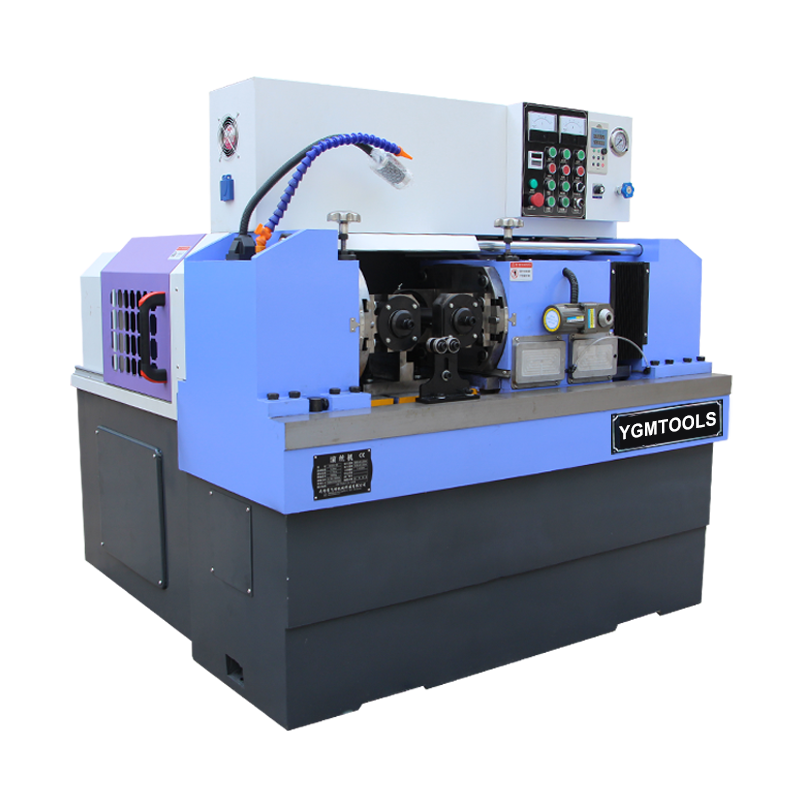
Understanding the Thread Rolling Process Flow
The manufacturing process utilizing a roll thread machine is a cold-forming operation that fundamentally re-shapes material rather than removing it. This method imparts significant material advantages, making it a preferred choice for high-strength applications. Below is a detailed process flow:
-
Step 1: Material Preparation (Input Material: Steel Bar/Rebar)
High-grade steel bars or rebar, typically conforming to ASTM A615, BS 4449, or similar international standards, are selected. These materials are chosen for their tensile strength, ductility, and weldability. Before threading, the bar ends are often cut to precise lengths and chamfered to facilitate smooth feeding into the machine and prevent damage to the rolling dies. In some cases, depending on the material's hardness, pre-treatment like annealing might be considered, though modern thread rolling machines are designed to handle a wide range of material hardness. -
Step 2: Die Selection and Machine Setup
The appropriate rolling dies are chosen based on the desired thread profile (e.g., ISO metric, Acme, UN, custom rebar threads) and material specifications. Dies are manufactured from high-speed steel (HSS) or specialized tool steels, often surface-treated (e.g., TiN coating) for extended service life and enhanced performance. The dies are meticulously installed and aligned in the thread rolling machine, with precise adjustments made for pitch diameter, lead, and pressure to ensure accurate thread formation. CNC machining plays a critical role in producing these highly accurate dies. -
Step 3: Material Feeding and Thread Rolling
The prepared steel bar is automatically or manually fed into the rolling area between the rotating dies. As the dies rotate and converge, they apply immense pressure to the bar's surface, causing the material to flow into the desired thread form. This cold working process not only creates the thread but also significantly work-hardens the material, increasing its fatigue strength and surface hardness. Unlike cutting, which removes material and disrupts grain flow, rolling preserves the material's continuous grain structure, leading to a stronger thread. -
Step 4: Cooling and Lubrication
During the rolling process, significant heat is generated due to friction and material deformation. A continuous flow of specialized thread rolling lubricant is applied to cool the dies and workpiece, reduce friction, and aid in chip removal (though minimal in rolling). This extends die life and ensures a high-quality thread finish. The lubricant selection is crucial for optimal process efficiency and product quality. -
Step 5: Quality Control and Testing
Post-rolling, each threaded component undergoes stringent quality control. This includes visual inspection for defects, dimensional checks using go/no-go gauges, micrometers, and optical comparators to verify pitch diameter, major diameter, and thread form accuracy. Non-destructive testing methods like eddy current testing may also be employed. Products are tested against industry standards such as ISO 965 (ISO general purpose metric screw threads), ANSI/ASME B1.1 (Unified Inch Screw Threads), and specific rebar coupling standards to ensure compliance. -
Step 6: Finishing and Packaging
Finished threaded bars may undergo further treatments like galvanization, phosphating, or other protective coatings to enhance corrosion resistance, depending on the application environment. Finally, the products are bundled, labeled, and packaged according to customer specifications, ready for shipment to target industries such as petrochemical, metallurgy, civil construction, and water supply & drainage. The typical service life of a high-quality thread rolled component can significantly exceed that of a cut thread, especially in fatigue-critical applications, often lasting for decades under designed loads.
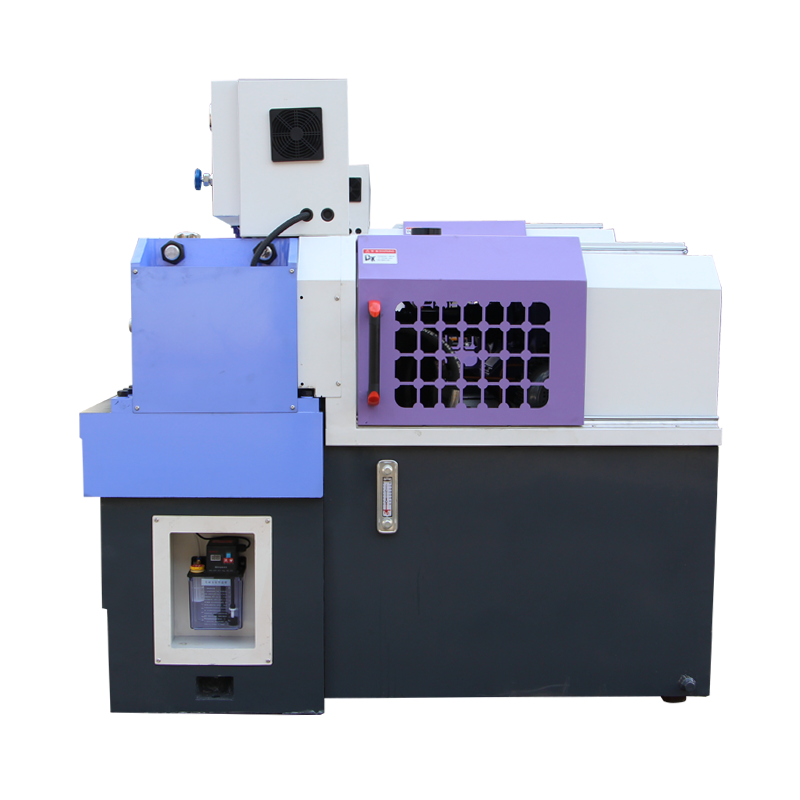
Technical Specifications & Parameters of Advanced Thread Rolling Machines
Modern roll thread machine technology represents the pinnacle of precision engineering. Key technical specifications dictate a machine's capability, efficiency, and the quality of threads it can produce. Understanding these parameters is crucial for selecting the right equipment for specific industrial demands.
Illustrative Product Specifications: Automatic Rebar Spoke Thread Rolling Machine
The following table provides typical specifications for an automatic rebar spoke thread rolling machine, designed for high-volume, precision rebar threading. These parameters illustrate the capabilities essential for heavy construction and infrastructure projects.
| Parameter | Value/Description |
|---|---|
| Model | MoteTools HR-2000 Pro (Example) |
| Thread Diameter Range | Φ16mm - Φ40mm (0.63 - 1.57 inches) |
| Max. Thread Length | Up to 150mm (5.9 inches) per pass |
| Motor Power | 5.5 kW (7.5 HP) |
| Spindle Speed | Adjustable, 60-120 RPM |
| Hydraulic System Pressure | Max. 16 MPa (2320 PSI) |
| Feed System | Automatic PLC-controlled hydraulic feeding |
| Control System | Siemens PLC with Touch Screen HMI |
| Machine Weight | Approximately 1200 kg (2645 lbs) |
| Dimensions (L x W x H) | 1800mm x 1000mm x 1400mm |
| Cooling System | Integrated oil cooling with filtration |
| Material Hardness Capability | Up to HRC 35 (depending on die material) |
These specifications ensure that the machine can consistently produce threads that meet stringent industry standards for strength and durability. The integration of advanced control systems and hydraulic precision underscores the sophistication required for modern threading applications.
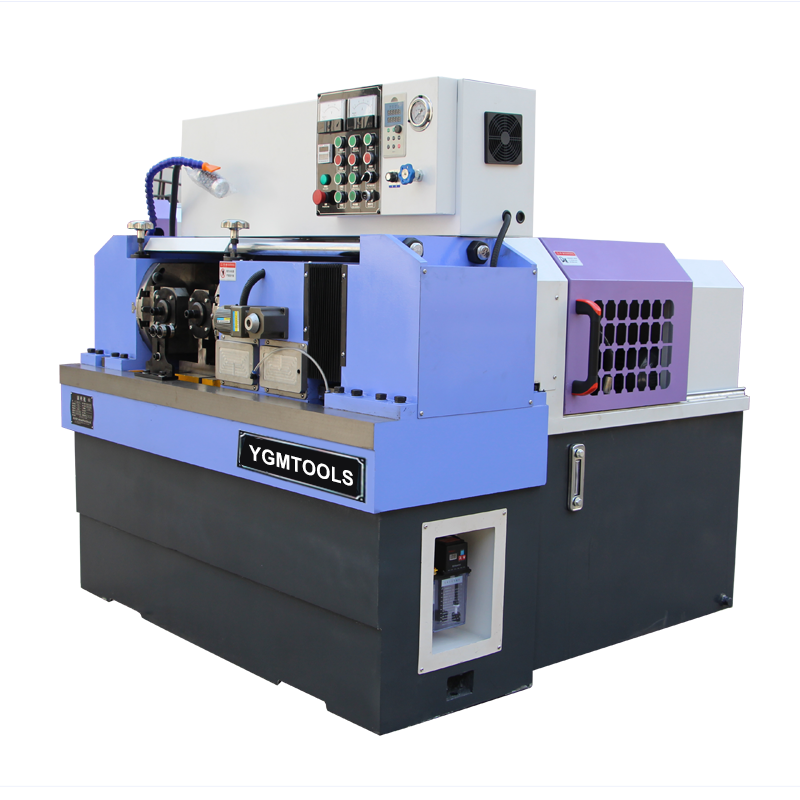
Key Application Scenarios
The versatility and strength benefits of components produced by a roll thread machine make them indispensable across a multitude of industrial sectors. From reinforcing critical civil structures to ensuring the integrity of complex mechanical assemblies, thread rolling applications are pervasive.
- Civil Construction & Infrastructure: Essential for rebar couplers, rock bolts, foundation anchors, and tensioning systems in bridges, high-rise buildings, dams, and tunnels. The enhanced fatigue resistance is critical for structures subjected to dynamic loads and seismic activity.
- Petrochemical & Energy Sector: Used for threaded rods, studs, and bolts in pipelines, refinery structures, offshore platforms, and power generation facilities. Corrosion resistance is paramount here, often achieved through post-rolling treatments on strong, rolled threads.
- Automotive & Aerospace: Production of high-strength fasteners, engine components, and specialized bolts where weight reduction and superior mechanical properties are crucial. Precision and reliability are non-negotiable in these industries.
- Metallurgy & Heavy Machinery: Creation of robust threaded shafts, lead screws, and heavy-duty fasteners for presses, rolling mills, and mining equipment, where extreme forces and wear are common.
- Water Supply & Drainage: Threaded components for pumps, valves, and piping systems, particularly in large-scale municipal or industrial water management where durability and resistance to environmental factors are key.
- General Manufacturing: Production of standard and custom threaded parts for a vast array of machinery, equipment, and consumer goods, ensuring cost-effective and high-quality fastening solutions.
In each of these sectors, the ability to produce threads with superior mechanical properties – including excellent surface finish, increased shear strength, and resistance to galling – provides a significant operational advantage.

Technical Advantages of Thread Rolling Over Traditional Methods
The inherent benefits of using a roll thread machine stem from its cold-forming process, which stands in stark contrast to material-removing methods like cutting or grinding. These advantages translate directly into superior product performance and cost efficiencies:
- Enhanced Material Strength and Fatigue Resistance: Thread rolling densifies the material at the thread root and flank, inducing compressive residual stresses. This cold working process significantly increases tensile strength, shear strength, and especially fatigue resistance, making the threads less prone to cracking under cyclic loading. This is a critical factor for applications requiring high reliability and extended service life.
- Superior Surface Finish and Hardness: The rolling action burnishes the thread surfaces, resulting in a smooth, work-hardened finish. This smooth surface reduces friction, prevents galling, and enhances wear resistance, which is vital in high-stress or dynamic environments.
- Material Conservation: Thread rolling is a chipless process, meaning no material is removed or wasted. This leads to substantial material savings, especially in high-volume production, contributing to lower manufacturing costs and reduced environmental impact. It is inherently an energy-saving process due to less material processing.
- Corrosion Resistance: While not directly imparting corrosion resistance, the smooth, cold-worked surface of a rolled thread provides a more uniform base for subsequent protective coatings (e.g., galvanizing, plating). The denser material structure can also be less prone to intergranular corrosion than cut threads.
- Improved Production Rates: Modern thread rolling machines are designed for high-speed operation, often capable of producing threads much faster than cutting methods, leading to higher throughput and increased productivity.
- Greater Thread Accuracy and Consistency: The precision of rolling dies, coupled with advanced machine controls, ensures exceptionally accurate and consistent thread profiles from one component to the next, crucial for assembly and interchangeability.
These advantages collectively position thread rolling as the superior choice for critical applications where thread integrity and longevity are paramount. For example, in bridge construction, rebar threaded with a steel bar thread rolling machine ensures the structural integrity and long-term durability of concrete elements, providing immense safety and cost benefits over decades of service.
Vendor Comparison: Choosing the Right Thread Rolling Machine
When evaluating options to buy a steel bar thread rolling machine, potential buyers face a market with several reputable manufacturers. Making an informed decision requires a thorough comparison of technical capabilities, after-sales support, customization options, and overall value. While specific product names like 'Reed thread rolling machines' are known for quality, it's essential to look at a broader spectrum of features.
Comparison Factors for a Roll Thread Machine
| Feature/Factor | Manufacturer A (e.g., MoteTools) | Manufacturer B (e.g., Global Competitor) |
|---|---|---|
| Thread Diameter Range | Φ16-40mm (rebar-focused) | Φ12-50mm (broader range, less specialized) |
| Control System | Siemens PLC, Touch HMI (User-friendly, robust) | Proprietary PLC, Button interface (Steeper learning curve) |
| Automation Level | Full automatic feeding & discharge | Semi-automatic with manual loading |
| Die Material Life | HSS with advanced coating (Extended life, e.g., 200,000 threads) | Standard HSS (Average life, e.g., 100,000 threads) |
| Energy Efficiency | Optimized hydraulic system, IE3 motor (High efficiency) | Standard motor, less optimized hydraulics (Moderate efficiency) |
| After-Sales Support | Global network, 24/7 remote support, local service partners | Regional support, limited remote assistance |
| Certifications | ISO 9001, CE, local rebar coupler standards compliance | CE (basic) |
This comparison highlights the importance of evaluating not just the initial purchase price but also long-term operational costs, reliability, and support. Vendors offering robust automation, proven certifications, and strong global support networks generally provide better value for mission-critical applications.
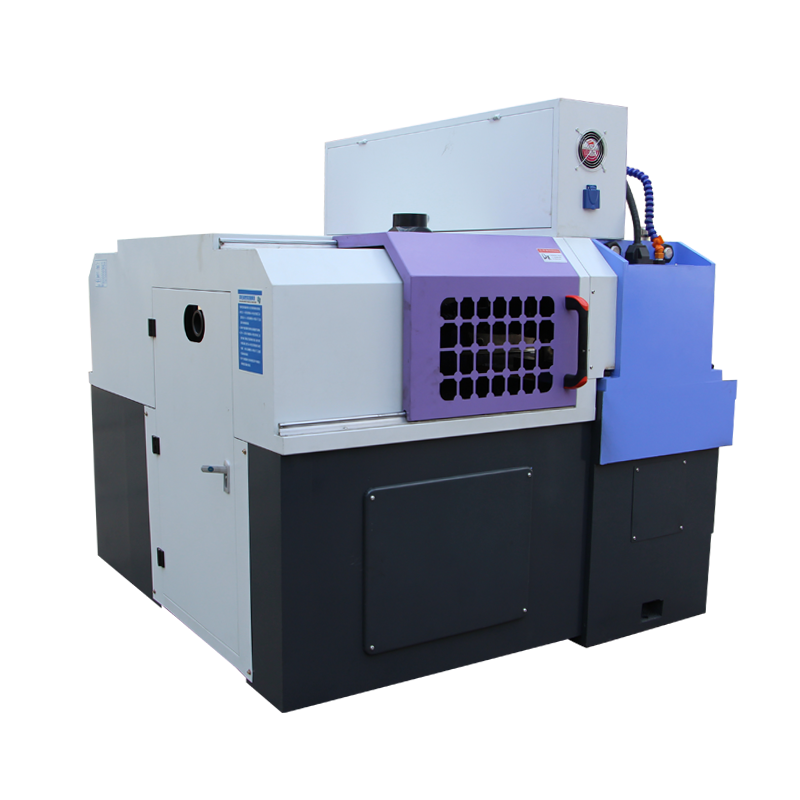
Customized Solutions and Partner Clients
Recognizing that no two industrial requirements are identical, leading manufacturers of roll thread machine systems excel in providing customized solutions. This flexibility ensures that specific production needs, material types, and thread specifications are precisely met, maximizing efficiency and output quality. Customization often involves:
- Tailored Thread Profiles: Developing specialized rolling dies for unique thread forms or non-standard diameters.
- Integrated Automation: Incorporating robotic loading/unloading systems, inline inspection, or integration with existing production lines.
- Material Handling Adaptations: Modifying feed mechanisms to accommodate unusually long, short, or uniquely shaped workpieces.
- Environmental Conditioning: Designing systems for operation in harsh environments, such as high temperatures, corrosive atmospheres, or cleanroom conditions.
Our company has over 15 years of experience in the design and manufacture of automatic rebar spoke thread rolling machines, serving a diverse portfolio of partner clients globally. Our clientele includes major construction conglomerates, prefabrication plants, and infrastructure development companies who rely on our precision engineering and robust equipment for critical applications. We hold ISO 9001 certification for quality management, reflecting our commitment to superior product standards and customer satisfaction. Our machines consistently pass rigorous independent testing to meet international standards such as ISO and ANSI, ensuring compliance and performance reliability.
Application Case Studies & Customer Feedback
Real-world application demonstrates the tangible benefits and reliability of high-quality thread rolling technology.
Case Study 1: High-Speed Rail Project, Southeast Asia
A major infrastructure contractor engaged our services for a critical high-speed rail project requiring thousands of precisely threaded rebar connections. Utilizing our automatic rebar spoke thread rolling machine, the client achieved a production rate of 12-15 threads per minute for 32mm rebar, significantly exceeding their previous output with traditional cutting methods. The cold-formed threads demonstrated superior tensile strength, passing stringent quality checks (including fatigue tests up to 2 million cycles) required by the project specifications. The project manager noted, "The consistency and strength of the threads produced by this steel bar thread rolling machine were instrumental in maintaining our tight construction schedule and meeting the uncompromising safety standards for high-speed rail infrastructure."
Case Study 2: Offshore Wind Farm Foundation, Europe
For an offshore wind farm foundation project, specialized threaded anchor bolts were required to resist extreme marine corrosion and dynamic loading. Our customized roll thread machine, equipped with dies designed for specific high-strength, corrosion-resistant alloy steel, was deployed. The machine's ability to create threads without material removal preserved the alloy's inherent corrosion resistance and enhanced its fatigue life. Independent lab tests confirmed a 25% increase in fatigue strength compared to cut threads of the same material. The client commended the solution for its reliability in a challenging environment, stating, "Our investment in this advanced thread rolling technology ensured the long-term stability and safety of our offshore structures, minimizing maintenance and maximizing operational uptime."
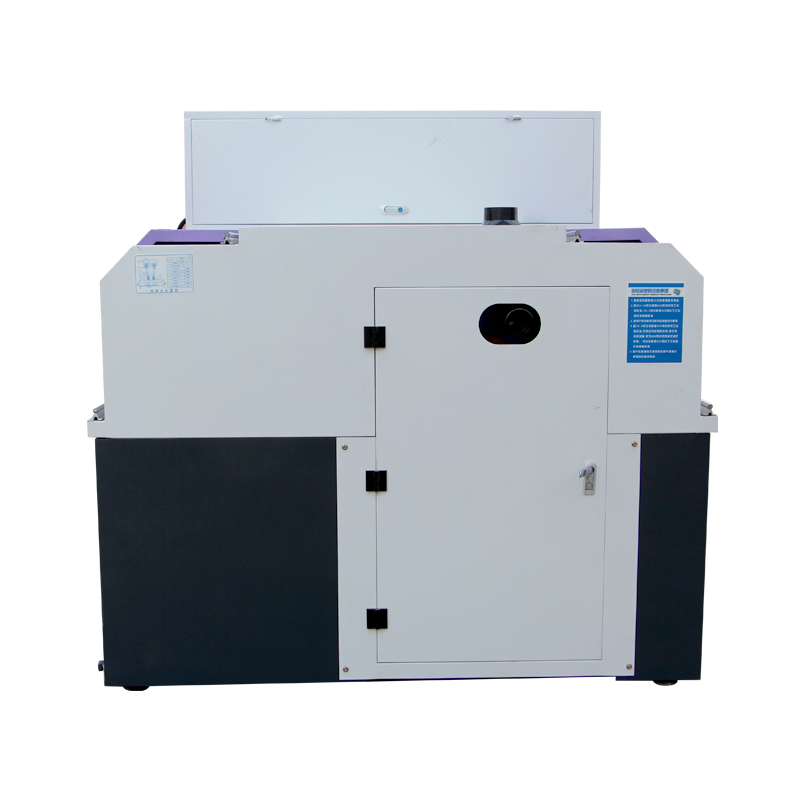
Trustworthiness & Support: Your Partner in Precision Threading
Frequently Asked Questions (FAQ)
Q: What types of materials can your automatic rebar spoke thread rolling machine process?
A: Our machines are primarily designed for various grades of carbon steel and high-strength alloy rebar (e.g., HRB400, HRB500, ASTM A615). With appropriate dies and machine settings, we can also process other specific steel alloys.
Q: How does thread rolling compare to thread cutting in terms of thread strength?
A: Rolled threads are significantly stronger than cut threads. The cold-forming process work-hardens the material, creates a continuous grain flow, and induces compressive residual stresses, resulting in higher fatigue, shear, and tensile strength compared to cut threads which interrupt the grain flow.
Q: What is the typical lead time for an automatic rebar spoke thread rolling machine?
A: Standard models typically have a lead time of 4-6 weeks from order confirmation to shipment. Customized solutions may require 8-12 weeks, depending on complexity. We provide detailed lead time estimates with each quotation.
Q: Is installation and training included with the purchase of a machine?
A: Yes, we offer comprehensive installation services and on-site training programs conducted by our experienced technicians. This ensures your team is fully proficient in operating and maintaining the roll thread machine for optimal performance.
Lead Time & Fulfillment
We prioritize efficient order fulfillment while maintaining the highest quality standards. Our streamlined manufacturing process, combined with robust supply chain management, ensures timely delivery. Standard products are typically fulfilled within 4-6 weeks, while specialized or custom configurations are delivered within an agreed-upon timeframe, usually 8-12 weeks. Each order is managed by a dedicated project manager who provides transparent updates throughout the production and delivery cycle.
Warranty Commitments
All our automatic rebar spoke thread rolling machines come with a comprehensive 12-month warranty covering manufacturing defects and component failures under normal operating conditions. This warranty period begins from the date of installation or 15 months from the date of shipment, whichever comes first. Extended warranty options and service contracts are also available to provide long-term peace of mind and minimize downtime.
Customer Support and After-Sales Service
Our commitment to our clients extends far beyond the sale. We offer world-class after-sales support, including:
- 24/7 Technical Assistance: Our dedicated support team is available around the clock via phone, email, and remote diagnostics to address any operational issues.
- Spare Parts Availability: A global network of spare parts depots ensures rapid access to genuine components, minimizing machine downtime.
- Preventative Maintenance Programs: Tailored service plans designed to maximize machine lifespan and optimize performance, including regular inspections and proactive component replacement.
- Upgrade & Modernization Services: Assistance with machine upgrades and technology integration to keep your equipment at the forefront of industrial capabilities.
Our goal is to be a reliable partner in your success, providing not just cutting-edge machinery but also the unwavering support necessary to maintain peak operational efficiency.
Authoritative References
- ASM Handbook, Volume 14A: Metalworking: Bulk Forming. ASM International, 2005.
- Kalpakjian, Serope, and Steven R. Schmid. Manufacturing Engineering and Technology. 7th ed. Pearson, 2014.
- ISO 965-1:2013, ISO general purpose metric screw threads — Tolerances — Part 1: Principles and basic data.
- ANSI/ASME B1.1-2003, Unified Inch Screw Threads (UN and UNR Thread Form).
- ASTM A615/A615M-20, Standard Specification for Deformed and Plain Carbon-Steel Bars for Concrete Reinforcement.
